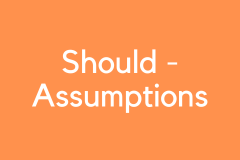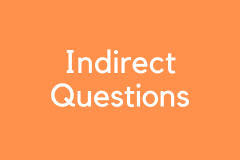Should for Assumption
Learn how to use should for assumptions in English.
Can you answer these grammar questions correctly?
Should - Assumptions
Point 1: We use should to express things that we expect to be true or expect to happen.
- The bus usually arrives at this time.
- The bus should be here any minute.
- This medicine helps relieve pain.
- This medicine should help you.
- The weather is usually nice this time of year.
- The weather should be nice tomorrow.
Point 2: We use should not to express things that we do not expect to be true or do not expect to happen.
- It does not cost much money.
- It shouldn't cost much money.
- It does not take a long time to do.
- It shouldn't take long to do.
- The shop is supposed to be open.
- The shop shouldn't be closed.
Point 3: We use shouldn't in questions when we think something is not correct or not expected.
- You think a chair is misplaced.
- Shouldn't the chair be over here?
- You think the bus should be here.
- Shouldn't it be here by now?
- You thought the shop would be open.
- Shouldn't the shop be open?
Point 4: When answering a question with should, we answer Yes or No + reason.
✔️ Yes → Agree with the assumption.
✗ No → Give a reason why not.
✔️ Yes → Agree with the assumption.
✗ No → Give a reason why not.
Shouldn't the bus be here by now?
- Yes, it should.
- No, it is always late. (No + reason)
Shouldn't you be in bed?
- Yes, I should, but I can't sleep.
- No, I need to be awake. (No + reason)










